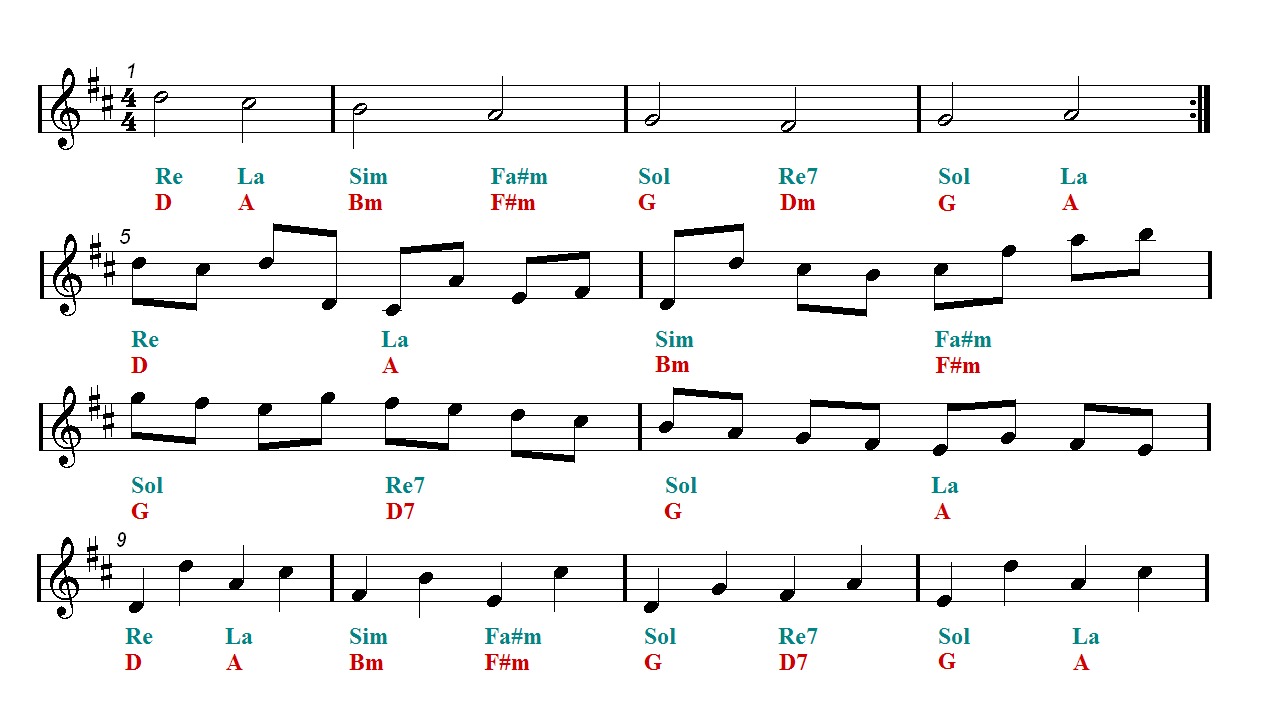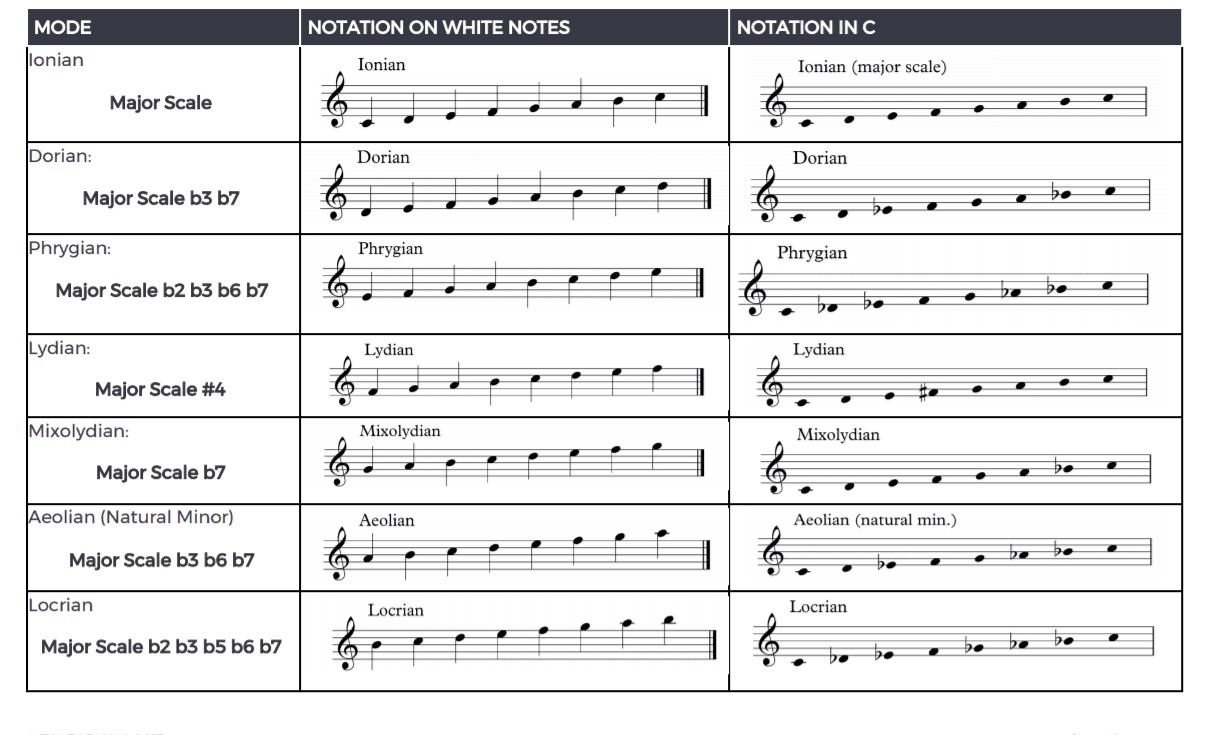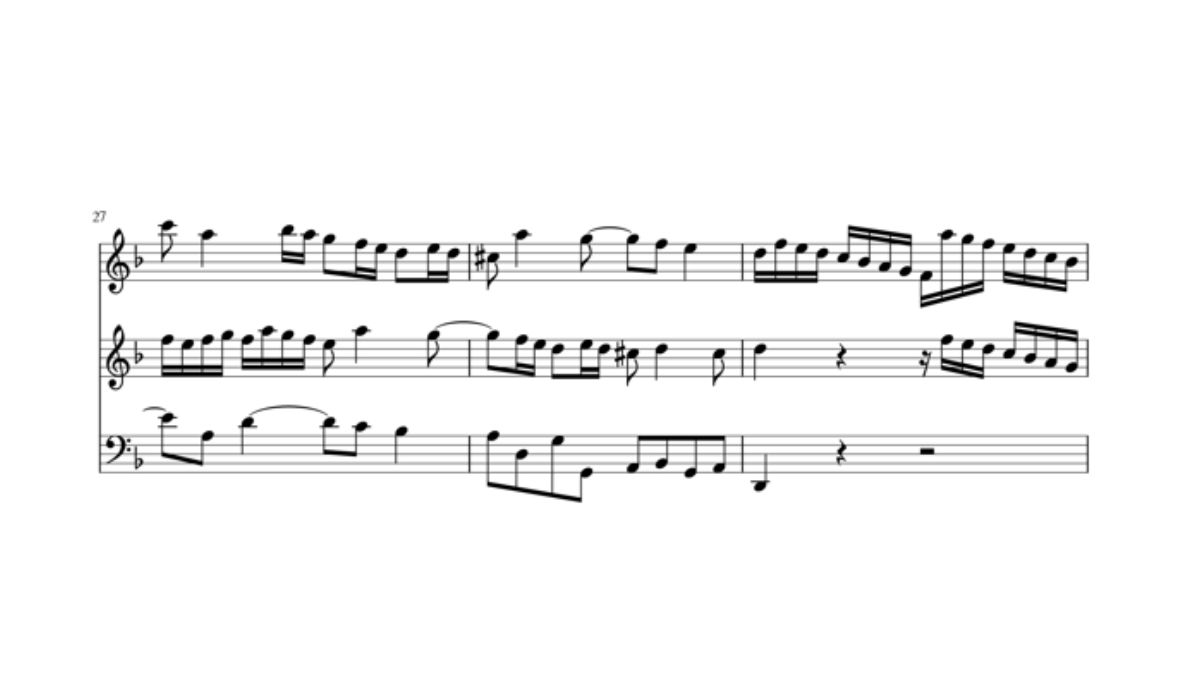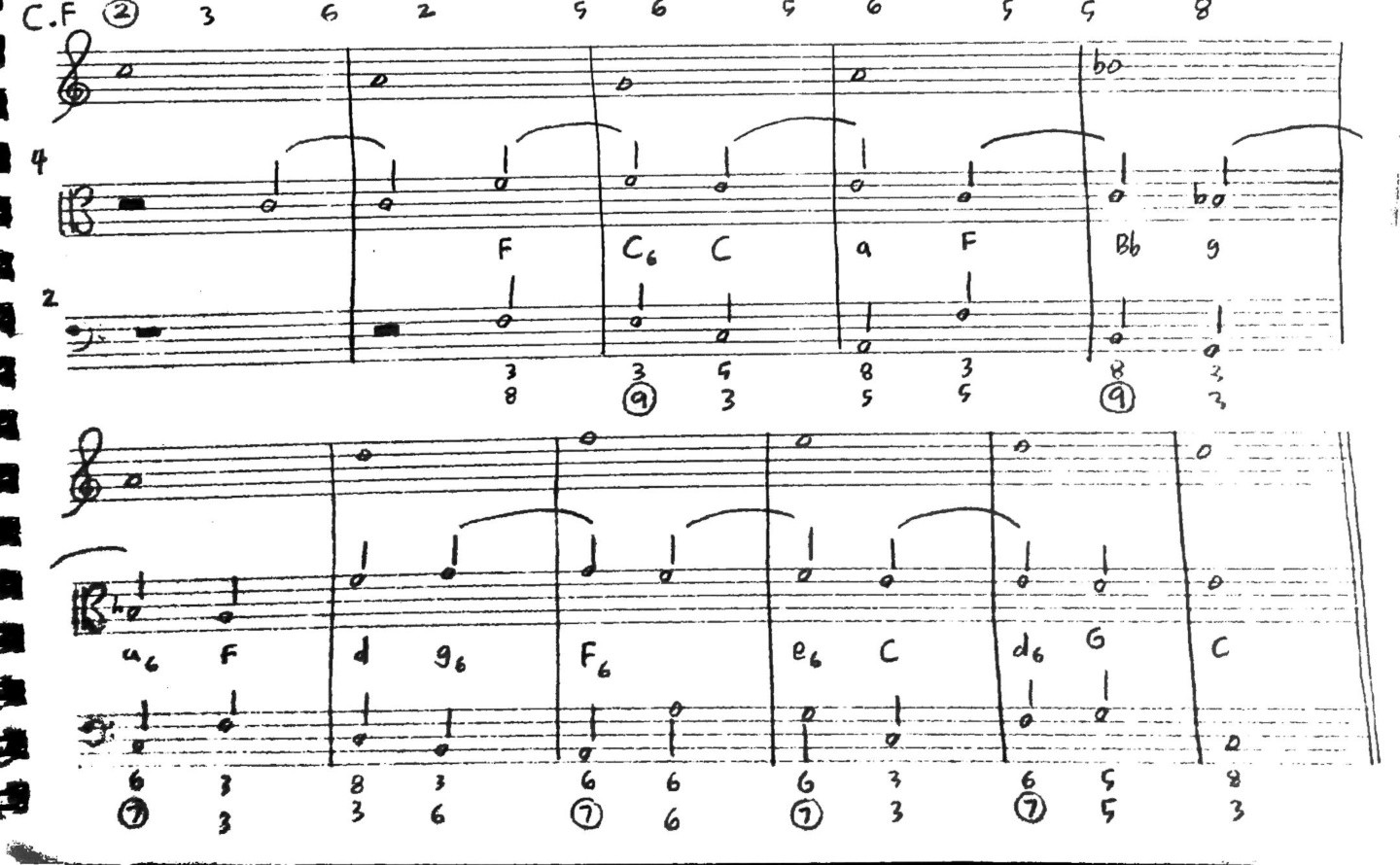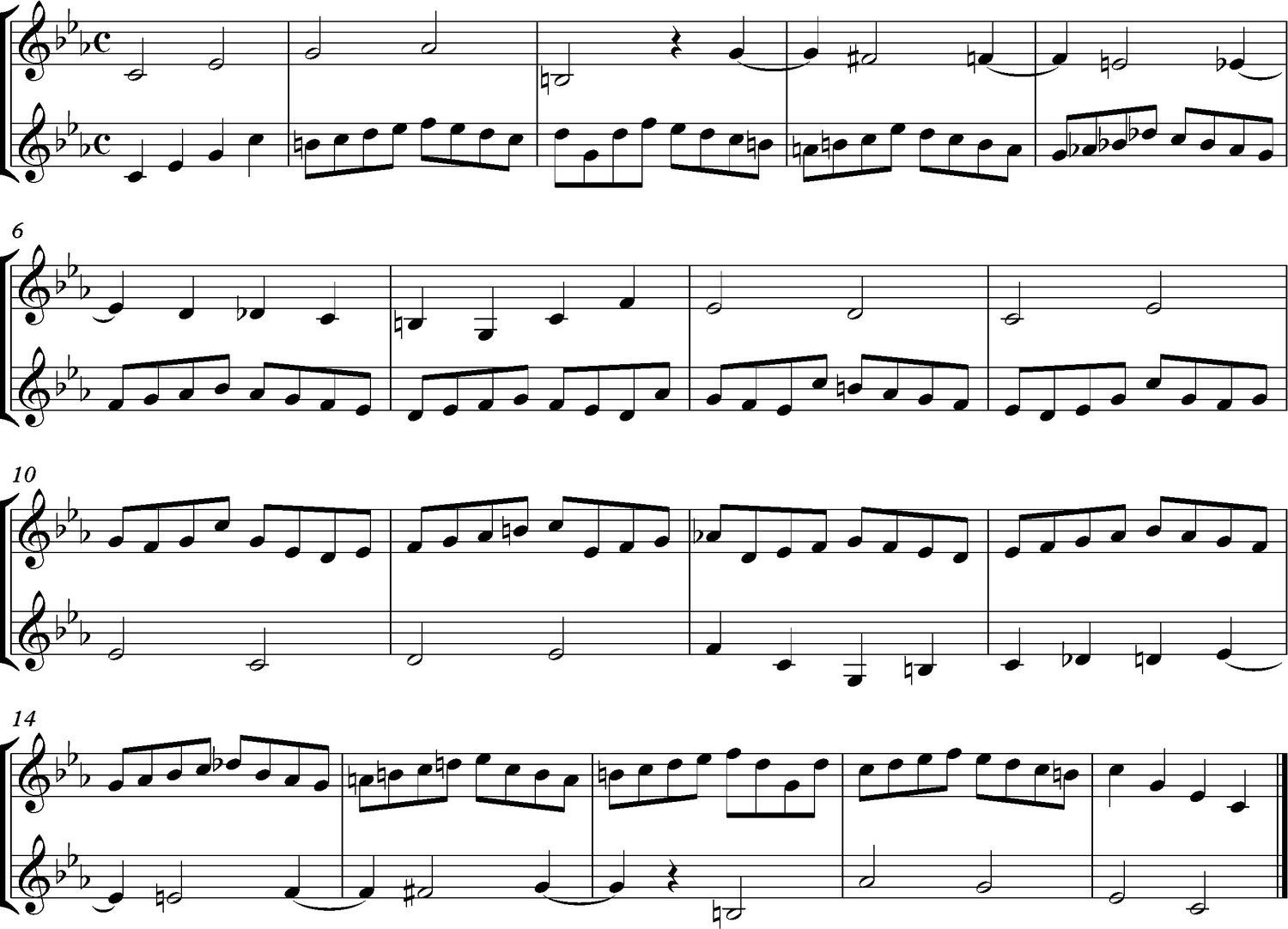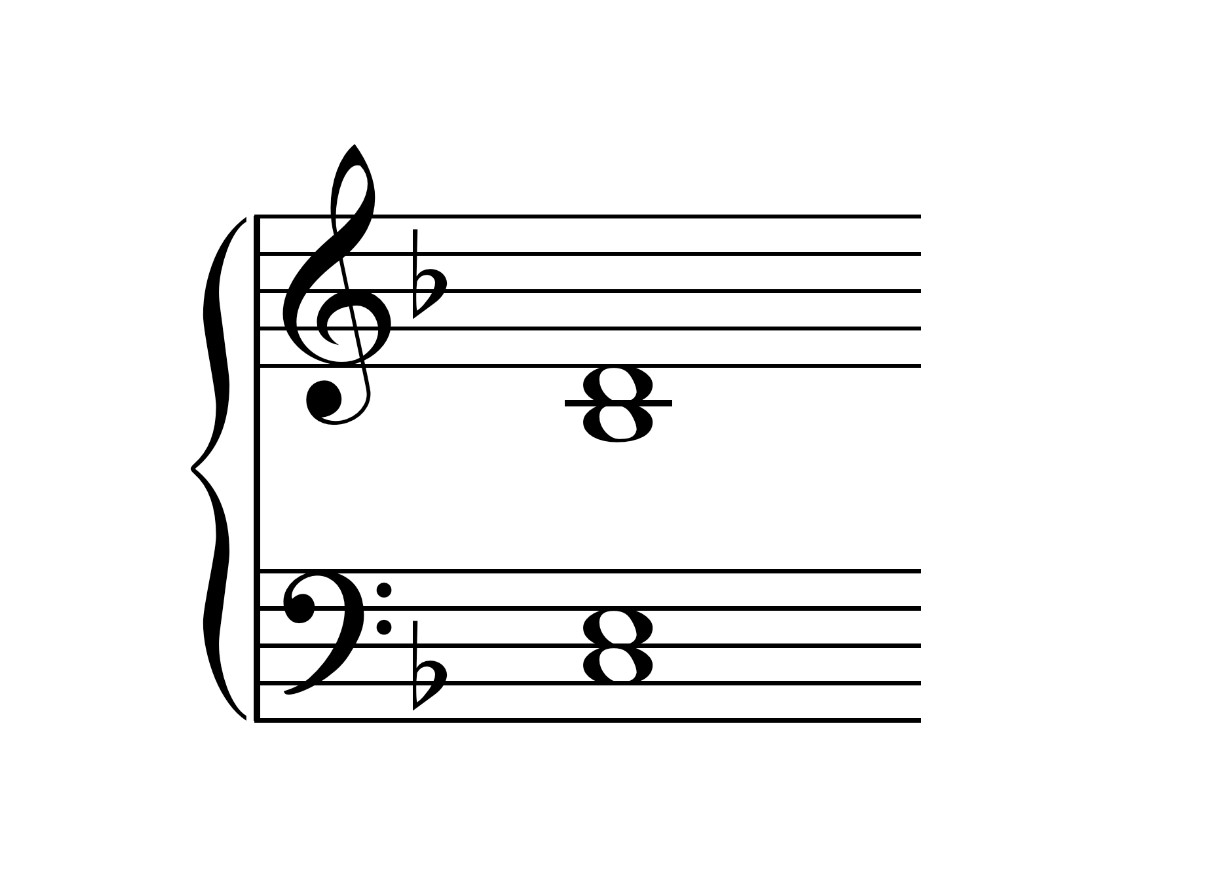Home>Production & Technology>Music Theory>What Is A Music Theory Class


Music Theory
What Is A Music Theory Class
Modified: February 1, 2024
Discover the fundamentals of music theory with our comprehensive music theory class. Gain a deeper understanding of key concepts and enhance your musical skills. Enroll today!
(Many of the links in this article redirect to a specific reviewed product. Your purchase of these products through affiliate links helps to generate commission for AudioLover.com, at no extra cost. Learn more)
Table of Contents
Introduction
Music theory is the foundation of understanding and creating music. It is the study of how music works, including the principles and concepts behind melodies, harmonies, rhythms, and structures. While some musicians may have an innate understanding of these elements, others may benefit from formal music theory classes to deepen their knowledge and expand their creative potential.
Music theory classes provide a structured environment for learners to explore the intricacies of music. Whether you are a beginner looking to grasp the basics or an advanced musician seeking to refine your skills, these classes offer a roadmap to unravel the mysteries of music theory.
By delving into music theory, students gain a deeper understanding of the language of music. They develop the tools to analyze and interpret musical compositions, allowing them to appreciate the intent behind the music and make more informed musical choices themselves. In addition, mastering music theory opens up a world of possibilities for composition, improvisation, and collaboration with other musicians.
While there are plenty of online resources available for self-study, enrolling in a formal music theory class offers several benefits. Firstly, it provides a structured learning environment with a knowledgeable instructor who can guide students through complex concepts and answer their questions. Additionally, being part of a class allows for interactive discussions and collaborative exercises with fellow students, which can provide valuable insights and foster a sense of musical community.
In the following sections, we will explore the various benefits, structure, topics covered, teaching methods, and the importance of music theory in musical education. We will also discuss the potential career paths that a strong foundation in music theory can open up. So, let’s dive in and discover the fascinating world of music theory!
Benefits of Music Theory Classes
Enrolling in music theory classes can offer numerous benefits to both aspiring and seasoned musicians. Let’s take a closer look at some of these advantages:
- Enhanced understanding: Music theory classes provide a systematic approach to understanding how music works. By studying key concepts such as scales, chords, and harmony, students gain a deeper understanding of the structure and organization of music. This knowledge allows them to analyze existing compositions and create their own music with a greater sense of purpose and coherence.
- Improved musicianship: Music theory classes help musicians develop their technical and listening skills. By understanding the underlying principles of melodies, harmonies, and rhythms, students can approach their instrument or voice with greater precision and control. They can also train their ear to recognize different musical elements, enabling them to play or sing in tune and with proper phrasing.
- Songwriting and composition: Studying music theory provides aspiring songwriters and composers with valuable tools for creativity. Learning about chord progressions, melodic structures, and song forms allows them to craft more engaging and compelling musical pieces. By understanding the principles behind successful compositions, students can experiment with different musical ideas and create their unique musical identity.
- Collaboration and communication: Music theory acts as a universal language for musicians. When musicians have a solid foundation in music theory, it becomes easier to communicate and collaborate with others. Whether reading sheet music, discussing musical ideas, or improvising together, a shared understanding of music theory allows for smoother and more effective musical interactions.
- Expanded repertoire: By studying music theory, students gain exposure to a wide range of musical styles and genres. They learn about the historical context, characteristics, and unique elements of different musical periods. This knowledge not only helps broaden their musical horizons but also informs their interpretation and performance of diverse repertoire.
- Career opportunities: For those pursuing a career in music, whether as performers, educators, composers, or musicologists, a solid understanding of music theory is essential. It provides a strong foundation for further study and specialization in specific areas of music. Music theory classes can also be a stepping stone towards advanced degrees in music and open up opportunities for teaching or working in the music industry.
These are just a few of the many benefits of music theory classes. Whether you’re a musician aiming to expand your knowledge or a music enthusiast wanting to deepen your appreciation and understanding, music theory classes offer a rich and rewarding journey into the inner workings of music.
Structure of Music Theory Classes
Music theory classes typically follow a structured curriculum designed to gradually introduce students to the core concepts and principles of music theory. While the specific structure may vary depending on the instructor or institution, there are common elements that you can expect to find in most music theory classes:
- Level of difficulty: Music theory classes are often divided into different levels based on the students’ proficiency and prior knowledge. Beginners typically start with a foundational level, while more advanced students may progress to intermediate or advanced levels. This allows for a more tailored learning experience and ensures that students are appropriately challenged.
- Sequential learning: Music theory is a cumulative subject, where each concept builds upon the previous ones. Classes are structured in a way that introduces new concepts in a logical sequence, ensuring that students develop a solid foundation before moving on to more complex topics. This sequential approach allows for a comprehensive understanding of music theory.
- Lectures and demonstrations: Instructors usually provide detailed lectures and demonstrations to explain the concepts and techniques covered in the class. They may use visual aids, musical examples, and interactive exercises to facilitate understanding. These lectures serve as a guide for students to grasp the theoretical aspects of music and apply them practically.
- Exercises and assignments: Music theory classes often involve a variety of exercises and assignments to reinforce learning and develop practical skills. Students may be required to analyze musical compositions, complete written exercises, or compose their own musical pieces. These activities allow students to apply the concepts they’ve learned and develop a deeper understanding of music theory in practice.
- Group discussions and collaborations: Music theory classes often provide opportunities for group discussions and collaborations. Students may participate in class discussions, share their insights, and engage in collaborative exercises with their peers. These interactions foster a sense of community and provide valuable perspectives from diverse musical backgrounds.
- Assessments and evaluations: To measure progress and understanding, music theory classes may include assessments and evaluations. These can take the form of quizzes, tests, or practical demonstrations of knowledge. Assessments help students gauge their own learning and allow instructors to provide feedback and guidance for improvement.
- Supplemental resources: In addition to class lectures and materials, students may be provided with supplemental resources, such as textbooks, online resources, or recommended readings. These resources allow for independent study and provide further insights into specific aspects of music theory.
It’s important to note that the structure of music theory classes can vary depending on the educational institution, instructor, or type of class (e.g., in-person classes, online courses, private lessons). However, regardless of the specific structure, music theory classes are designed to provide a comprehensive and progressive learning experience that equips students with a solid foundation in music theory.
Topics Covered in Music Theory Classes
Music theory classes cover a wide range of topics that delve into the fundamental principles and elements of music. These topics provide students with the necessary tools to understand and analyze music, as well as apply theory to their own musical endeavors. While the specific curriculum may vary depending on the level and duration of the class, here are some common topics covered in music theory classes:
- Notation: Music notation is the system used to write and read music. In music theory classes, students learn to read and interpret standard notation, including understanding note values, rhythms, key signatures, and time signatures.
- Scales and modes: Scales are the building blocks of melodies and harmonies. In music theory classes, students explore major and minor scales, as well as other modes such as the Dorian, Mixolydian, and Lydian modes. Understanding scales helps musicians create melodic patterns and harmonize musical passages.
- Chords and harmonies: Chords are a combination of three or more notes played simultaneously. Music theory classes cover the construction and analysis of chords and chord progressions. Students learn about triads, seventh chords, inversions, and chord functions, enabling them to understand and create harmonies in different musical contexts.
- Key signatures and transposition: Key signatures determine the tonal center of a musical composition. Music theory classes teach students how to identify key signatures, transpose music to different keys, and understand the relationships between keys and scales.
- Counterpoint: Counterpoint explores the art of combining multiple melodies to create harmonic and contrapuntal textures. Students learn about different contrapuntal techniques and how to create melodic lines that interact harmoniously.
- Musical forms and structures: Understanding musical forms and structures allows students to analyze and appreciate the organization of pieces within a larger context. Music theory classes cover forms such as sonata form, theme and variations, rondo, and binary form.
- Rhythm and meter: Rhythm and meter give music its pulse and sense of time. Students learn about different rhythmic patterns, time signatures, syncopation, and interpretation of rhythmic notation.
- Ear training: Ear training is a crucial aspect of music theory. Students develop their ability to recognize and identify intervals, chords, melodies, and progressions by ear. This skill enhances musical perception and helps musicians play by ear, improvise, and transcribe music.
- Analysis and composition: Music theory classes provide techniques for analyzing musical compositions to understand their structure, harmonic progressions, and melodic motifs. This analysis serves as a foundation for students to apply their knowledge to composition, allowing them to create their own musical pieces.
These are just a few of the many topics covered in music theory classes. Each topic builds upon the previous ones, providing students with a comprehensive understanding of how music works. By studying these topics, students gain the necessary tools to analyze, create, and appreciate music on a deeper level.
Teaching Methods in Music Theory Classes
Music theory classes employ various teaching methods to engage students and facilitate learning. These methods aim to make the subject matter accessible, practical, and enjoyable. Here are some commonly utilized teaching methods in music theory classes:
- Lectures and demonstrations: The instructor delivers lectures and demonstrations to introduce and explain music theory concepts. They provide clear explanations, examples, and visuals to help students understand the theoretical principles and their practical applications in music.
- Hands-on exercises: Music theory classes often incorporate hands-on exercises to reinforce learning. These may include sight-singing, dictation exercises, or playing musical examples on an instrument. Such exercises help students develop their musical skills and train their ears to recognize intervals, chords, melodies, and rhythms.
- Group discussions and collaborations: Music theory classes encourage group discussions and collaborations. Students engage in discussions about music theory concepts, share their insights, and exchange ideas. Collaborative activities may include analyzing musical compositions, solving musical puzzles, or composing music together. Group interactions foster a sense of community and provide diverse perspectives on the subject matter.
- Technology and multimedia: Music theory classes often incorporate technology and multimedia resources to enhance learning. These may include interactive software programs, virtual simulations, or online platforms. Technology can provide visual and auditory aids, allowing students to explore music theory in an engaging and interactive way.
- Practical application: Music theory is best learned when applied to real-life musical situations. Instructors teach students how music theory concepts relate to actual music by analyzing and deconstructing musical compositions. Through practical application, students can see the direct impact of music theory on musical expression and creativity.
- Individualized instruction: Instructors provide individualized instruction to address the specific needs and goals of each student. They offer personalized feedback, guidance, and support, allowing students to progress at their own pace. This individualized approach ensures that students receive the necessary attention and assistance in their music theory journey.
- Formative and summative assessments: To evaluate student progress and understanding, music theory classes employ formative and summative assessments. Formative assessments, such as quizzes and in-class exercises, provide ongoing feedback and help students solidify their understanding. Summative assessments, such as exams or projects, measure students’ overall knowledge and skills at the end of a course or level.
By combining these teaching methods, music theory classes create a dynamic and interactive learning environment. Students are actively engaged in the learning process, develop practical skills, and gain a deep understanding of music theory concepts. These teaching methods foster a positive and enjoyable learning experience for students of all levels and backgrounds.
Importance of Music Theory in Musical Education
Music theory plays a vital role in the comprehensive education of musicians and is a cornerstone of musical development. Here are some key reasons why music theory is important in musical education:
- Understanding musical language: Music theory provides the necessary vocabulary and grammar to understand and communicate musical ideas effectively. It allows musicians to read and interpret sheet music, understand musical symbols, and articulate musical concepts. This understanding enhances musical literacy and facilitates collaboration and communication among musicians.
- Analyzing and appreciating music: Music theory equips musicians with the tools to analyze and appreciate the intricacies of musical compositions. By examining the structure, harmonic progressions, and melodic motifs, musicians can gain deeper insights into the artistic choices made by composers. This analysis enhances their ability to interpret and perform music with nuance and sensitivity.
- Developing creative skills: Music theory provides a framework for composing and improvising music. By understanding concepts such as scales, chords, and progressions, musicians can experiment with different musical ideas and create their own compositions. This creative exploration fosters personal expression and musical innovation.
- Building technical proficiency: Music theory enhances musicians’ technical proficiency and precision. By understanding the underlying principles of melodies, harmonies, and rhythms, musicians can approach their instrument or voice with greater accuracy and control. This understanding allows for more nuanced and expressive performances.
- Expanding musical repertoire: Music theory provides a foundation for exploring and understanding a wide range of musical styles and genres. It allows musicians to appreciate and perform diverse repertoire, providing a rich and varied musical experience. This exposure to different musical styles expands their musical horizons and nurtures their artistic growth.
- Facilitating collaboration: Music theory acts as a universal language that facilitates collaboration among musicians. When musicians have a solid understanding of music theory, they can communicate their musical ideas more effectively, interpret notation accurately, and engage in collaborative musical experiences. This shared understanding fosters a sense of unity and cohesion within musical ensembles.
- Developing critical thinking skills: Music theory encourages musicians to think critically and analytically about music. It requires them to evaluate and make informed decisions about musical elements such as form, structure, and harmonic relationships. This development of critical thinking skills extends beyond music and can be applied to other areas of life.
By incorporating music theory into musical education, musicians gain a comprehensive understanding of the principles and concepts that underlie music. This understanding provides a solid foundation for artistic expression, collaboration, and lifelong musical growth.
Careers in Music Theory
A strong foundation in music theory opens up a variety of career opportunities in the field of music. While some careers directly focus on music theory itself, others benefit from a solid understanding of music theory as an essential component of their work. Here are a few career paths that can be pursued with a background in music theory:
- Music Educator: Many music educators teach music theory as part of their curriculum. Whether working in schools, colleges, or private institutions, music educators use their knowledge of music theory to guide students in understanding the principles and techniques behind music. They may teach in both individual and group settings, helping students develop their musical skills and appreciation.
- Musicologist: Musicologists study the historical and cultural aspects of music. They delve into music theory as they analyze and research musical compositions from different time periods and genres. Their expertise in music theory enables them to understand the structures, harmonies, and key concepts behind various musical compositions, enhancing their ability to interpret and contextualize the music.
- Composer/Arranger: For composers and arrangers, a thorough knowledge of music theory is essential. Understanding harmony, counterpoint, and form enables them to create original works or arrange existing compositions. They utilize their understanding of music theory to craft cohesive and engaging musical pieces in different styles and genres.
- Music Director/Conductor: Music directors and conductors lead orchestras, choirs, or bands with a comprehensive understanding of music theory. They analyze musical scores, interpret the composer’s intentions, and guide the ensemble in performance. Their knowledge of music theory allows them to communicate effectively with musicians, ensuring accurate interpretations and captivating performances.
- Music Journalist/Critic: Music journalists and critics write reviews and articles about musical performances and recordings. A background in music theory enables them to analyze and evaluate the technical and artistic aspects of the music. They can provide insightful commentary on the compositional techniques, harmonies, and structures employed in the music they review.
- Music Technology Specialist: In the digital age, music technology plays a significant role in the creation and production of music. Music technology specialists use their understanding of music theory to develop and utilize software and digital tools for notation, recording, and production. They ensure that the technology aligns with the principles of music theory, allowing musicians to create and enhance their music effectively.
- Music Therapist: Music therapists use music as a therapeutic medium to address physical, emotional, cognitive, or social needs of individuals. A solid foundation in music theory helps them analyze and select appropriate musical elements to achieve specific therapeutic goals. They may utilize music theory concepts to compose music tailored to individual clients or lead group music therapy sessions.
These are just a few examples of career paths that benefit from a strong background in music theory. The understanding of music theory enhances musicianship, opens doors to various musical professions, and provides a valuable foundation for further study and specialization in specific areas of music.
Conclusion
Music theory classes play a crucial role in the education and development of musicians. By studying music theory, individuals gain a deeper understanding of music, its structure, and its underlying principles. This knowledge enhances their musical proficiency, creativity, and ability to communicate with other musicians. Music theory is not just for those pursuing a career in music; it is valuable for anyone who wants to deepen their appreciation and understanding of music.
Through music theory classes, students can unlock the secrets of melodies, harmonies, rhythms, and musical forms. They learn to read and interpret sheet music, analyze compositions, and apply these ideas to their own musical endeavors. With a solid foundation in music theory, musicians are better equipped to express themselves artistically, whether through performance, composition, or improvisation.
Music theory classes also foster collaboration and community among musicians. Students engage in group discussions, share insights, and collaborate on creative projects, creating a supportive and enriching learning environment. Moreover, mastering music theory opens up possibilities for a variety of musical careers, such as music education, musicology, composition, conducting, and music journalism.
Furthermore, music theory connects musicians across different genres and time periods. It provides a common language that spans musical styles and allows for meaningful musical exchanges and collaborations. By understanding the principles of music theory, musicians can appreciate and perform music from diverse cultural backgrounds and genres.
In conclusion, music theory classes are an essential component of musical education. They provide a solid foundation for understanding and creating music and offer a roadmap to navigate the vast world of music. Whether you are a beginner musician or a seasoned professional, studying music theory will enhance your musical journey, allowing you to communicate, create, and appreciate music more profoundly.



